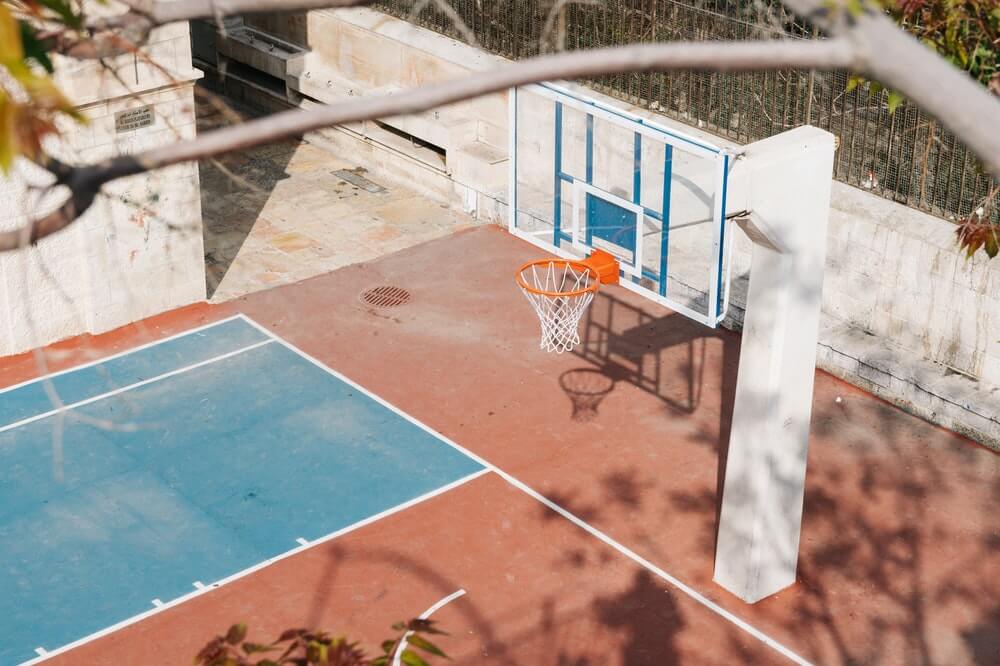Sports Courts – Everything You Need to Know About Building One

If you live in Australia, you’re probably no stranger to sports courts. These large courts are ubiquitous throughout the country, and you are bound to find at least a couple of them in every neighbourhood you visit. Sports courts come in all sorts of surfaces and sizes, ranging from a small acrylic tennis court in your neighbour’s backyard to a larger synthetic grass cricket pitch at your local cricket ground.
In this article, we examine what exactly is a sports court, and provide some tips should you want to have a sports court constructed in your backyard or in your neighbourhood.
What Exactly is a Sports Court?
A sports court typically refers to an outdoor asphalt court that is built specifically for the purposes of playing sports on it. The types of sports that can be played on a sports court vary immensely, and some of the most played sports include:
- Tennis
- Basketball
- Cricket
- Handball
- Netball
- And many more
Choosing the Perfect Size for Your Sports Court
There is no fixed size for a sports court. As long as you are not intending to host the Olympics in your backyard, your sports court can be of any size that fits your needs. Smaller sports courts may start from just 4 metres by 6 metres and would be an ideal playing area for children’s sports. Furthermore, being relatively small also makes it easier to fit into your backyard area, especially if you don’t have the luxury of space on your property.
On the other hand, if you are a basketball aficionado and have an abundance of space to spare on your property, then a regulation half-court size of 11 metres by 15 metres might be a better alternative size for your needs.
In short, there is no one size fits all solution when it comes to sports court sizes. If you are looking to construct a sports court, it would be best for the size of your sports court to suit your needs so that it doesn’t end up becoming a white elephant some time down the road.
Sport Court Surfaces
Depending on the sport that it is intended for, the type of surface may also vary. Some of the more common sports court surfaces include:
- Acrylic Hard Courts
- Acrylic Cushioned Courts
- Synthetic Grass Courts
Acrylic Hard Courts
Acrylic hard courts are by far one of the most common types of sports court surfaces around the country. The popularity of acrylic hard courts can be attributed to their versatility, with a wide range of sports being playable on such a surface, ranging from tennis and netball to basketball and even handball. In addition, acrylic hard courts also require next to no regular maintenance, making them a very popular choice as well.
However, one drawback of acrylic hard courts is that the hard surface may pose a risk of injury from falls. In addition, the impact of running around on an acrylic hard court may also result in knee and ankle injuries in the long term.
Acrylic Cushioned Courts
Acrylic cushioned courts provide you with the feel of playing on a hard court but without the drawbacks. This type of surface typically utilises a rubber cushioning system underneath the hard surface. Like hard courts, these also require little maintenance apart from an occasional sweeping of leaves and other debris that may have accumulated.
Synthetic Grass Courts
Synthetic grass courts are another great choice of surface when it comes to building your very own sports court. Most commonly, this type of surface is selected when the intended purpose of the sports court is for sports such as cricket and hockey.
Choosing the Ideal Surface for Your Sports Court
Ultimately, your decision when it comes to the surface of your sports court should depend on several factors. Firstly, you may want to consider how often you intend to play on your sports court. If you are a regular tennis player who hits the courts once a day, you may want to go with an acrylic cushioned court to protect your knees and ankles.
On the other hand, if you are a less frequent athlete who fancies playing more than one sport, then an acrylic hard court may be better suited to your needs, given its versatility and the low maintenance and upkeep required.
At the same time, you should also consider whether your sports court may be used by children. If so, you may prefer a synthetic grass court as children are less likely to injure themselves should they fall on a synthetic grass surface as opposed to a hard acrylic surface.
Choosing a Reliable Construction Service Provider
No matter what size and surface you go with for your sports court, your dreams don’t become reality until you get around to actually building your sports court. If you are interested in finding out more about the topic, check out our comprehensive guide to sports court construction. In addition, the job is still not complete even after your sports court has been completed. You’ll want to ensure that your sports court is properly protected with the right type of fencing. For more information about fencing, check out our article on the ins and outs of tennis court fencing.
At the end of the day, if you want to have your very own sports court, you would be best off leaving the sports court construction process in the hands of experienced professionals. Doing it yourself can pose many safety hazards and without any experience, you may even end up with a final result that you aren’t satisfied with. As such, it is crucial that you engage a reliable construction service provider to ensure that you get the sports court of your dreams.
Here at TFR Construction, our team has decades of experience in the field of sports court construction, amongst other construction specialities such as excavation, retaining walls, laser grading and more. If you have any questions regarding your construction needs, feel free to get in touch with us for a no-obligation consultation and we’ll be more than happy to help you with your queries.
Recent Posts
A Parcel for the Picking – Things to Consider When Buying Land for Your Home
Selecting the proper parcel of land might be challenging but approaching the task with the correct knowledge makes it worthwhile.
Stone Landscaping: Adding Statement Stone and Boulders to Your Landscape
Stone landscaping is low maintenance, sustainable, and extremely versatile. Here is a realistic view of the main pros and cons of stone landscaping.
5 Ways to Beautify Your Sleeper Retaining Walls
In this blog post, we examine how you can combine looks and function with the latest designs of retaining walls available today.
How Sleeper Retaining Walls Can Help with Property Water Drainage Systems
We take a closer look at why retaining walls can be a fantastic solution for redirecting water around the house and protecting your foundation.
What Is a Commercial Contractor?
Contractors who work on commercial buildings have the know-how, expertise, and certifications to handle commercial construction work. But what exactly is a commercial contractor, and do you need one for your next project? Read on to find out if a commercial contractor is right for you.
Recent Posts
A Parcel for the Picking – Things to Consider When Buying Land for Your Home
Selecting the proper parcel of land might be challenging but approaching the task with the correct knowledge makes it worthwhile.
Stone Landscaping: Adding Statement Stone and Boulders to Your Landscape
Stone landscaping is low maintenance, sustainable, and extremely versatile. Here is a realistic view of the main pros and cons of stone landscaping.
5 Ways to Beautify Your Sleeper Retaining Walls
In this blog post, we examine how you can combine looks and function with the latest designs of retaining walls available today.
How Sleeper Retaining Walls Can Help with Property Water Drainage Systems
We take a closer look at why retaining walls can be a fantastic solution for redirecting water around the house and protecting your foundation.
What Is a Commercial Contractor?
Contractors who work on commercial buildings have the know-how, expertise, and certifications to handle commercial construction work. But what exactly is a commercial contractor, and do you need one for your next project? Read on to find out if a commercial contractor is right for you.





